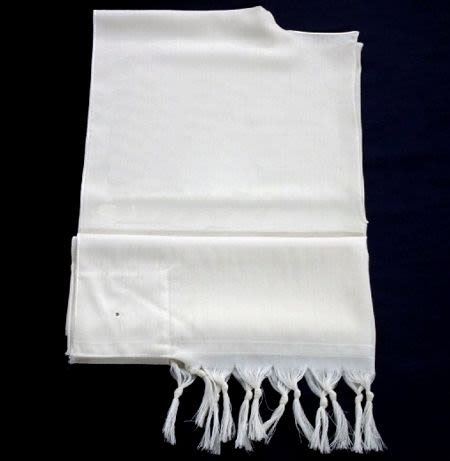
The Wedding of the Year
For some mysterious reason, the minute the couple got engaged, the bride’s family suddenly decided that they were descendants of the House of Rothschild…

Recently the world oohed and aahed the fancy royal wedding of Prince Harry and Meghan Markle. I didn’t watch it, but I did see a few pictures of her dress and the family portrait. To be honest, I was a bit surprised by how simple and understated her look was. She obviously has elegant taste, but since I don’t know anything about her, I just assumed she’d be wearing a wedding dress loaded with diamond and pearl applique and endless yards of lace.
In any case, she looked gorgeous. Though I am very disappointed that I wasn’t invited.
So a friend and I were talking about the wedding that we both knew nothing about, and naturally the conversation led to another couple that recently got married.
This couple lives in the States and comes from a modest, upper-middle class family. But for some mysterious reason, the minute they got engaged, the bride’s family suddenly decided that they were descendants of the House of Rothschild.
You know what that means.
 Spending started spinning and spiraling out of control. (What a great tongue-twister!)
Spending started spinning and spiraling out of control. (What a great tongue-twister!)
Of course I made my friend give me all the juicy details, like how much they spent on the dress and flowers and all that good stuff. Because, you know, I’m still a girl, and girls love to know that kind of stuff. Even a super holy tzaddekess like moi.
As I fall asleep writing this, I’m replaying our lashon hara conversation in my head to make sure I got all the facts right. It went something like this:
“Can you just believe how much she paid to rent the dress?” my friend asked.
“Say wha’?? Thousands of dollars to rent a dress?? Fo’ rizzle??” I was incredulous.
“Oh, and the makeup? Another couple thousand dollars,” she nodded, with that know-it-all look on her face. You know what I’m talking about. Just think of two New Yorkers shmoozing over coffee and bagels in the morning. Yeah. That’s the look. Complete with a head nod and one raised eyebrow for full effect.
“Thousands of dollars on makeupppp???” I couldn’t believe my ears. How ugly could she be?
I know, that sounded so rude! But guurrrl, if you gonna spend thousands of dollars to hide your face, I’m getting a little suspicious.
Oh, and the groom? He was just as guilty. Gucci belt, Armani suit, Prada shoes, what is this, New York Fashion Week?
I couldn’t understand it. As an outsider who wasn’t invited to the wedding, I have to take into account my sensitive hurt feelings. I mean, it could be that I was speaking lashon hara out of hurt.
But really? No.
Instead, it could be that this type of spending is completely ridiculous, and for many reasons.
First, let me clearly state to the jury that it is absolutely okay to enjoy the blessings Hashem gives us! If He gives us wealth, there’s nothing wrong with treating ourselves to nice homes and fancy vacations.
The challenge is when the temptation to spoil yourself becomes an insatiable void that can’t be filled no matter how much money you throw into it. Of course, if you are using your money to help others in substantial ways, this is one way to kind of safeguard against turning into Mr. Rich and Stingy Old Man Who Fights With Everyone.
Okay, now that we got that little detail out of the way, let us proceed with our examination of New York’s Wedding of the Year.
My friend personally knows the family, and she knows that they jumped off a financial cliff when they paid for the engagement party and wedding.
So I’d like to ask a few practical questions, even though thinking practically gives me migraines.
First: how many years will the parents have to tighten their budget (i.e. eat kosher Ramen noodles) in order to pay for the wedding?
Second: how much future stress will these wedding bills add to the parents’ and siblings’ lives, and for how long?
Third: Did the couple miss out on the gift of a nice apartment or cash in the bank because all of that money went toward centerpieces that die in a week?
Fourth: Why did the parents feel such pressure to make a wedding beyond their financial means? Was it because they were afraid of being looked down upon by their friends? Was it ego? Fear of being viewed as a poor charity case?
And most importantly, my fifth point: What types of values did the parents think they were teaching their kids? By 18-20 years old, most kids are pretty aware of their financial status, at least in a general sense.
So what message are they supposed to take away when they see their parents be frugal on one hand, then throw away loads of money on things that won’t last them for more than a few hours?
Now I realize that there gonna be some haters out there who will argue that it’s their kids’ wedding, and they’re entitled to spoil them.
Yes. I agree. To a degree.
They’re absolutely entitled to spoil them as much as they can, within their financial means. Beyond that, why? Just… why?
What’s wrong with giving them their first real adult lesson about living responsibly? What’s wrong with saying, “Listen, kiddo, we’d love to give you a royal wedding, but this is what we can afford right now. So let’s make the best of it.”
Would it be so horrible?
Living within our general means is a great way to live with emuna. We’re telling Hashem we realize that what we have is what He gave us to work with, and that we’re doing our best to use everything responsibly.
That’s not to say that we can’t stretch ourselves every once in a while! But it’s up to us to figure out when too much is really too much.
I know that many of us have older kids, and we might think it’s too late. But it’s never too late to teach (or learn) responsible spending habits. I encourage you parents out there to be open with your kids about money, explaining that sometimes there are things that we’d like, but can’t have just yet. Encourage them to help around the house for some cash. I would say bribe them to do stuff for you, but some child’s rights activist out there might get upset.
You can even make a vision board together. Put up pictures of things you’d like to have and encourage them to work toward their goals.
And don’t forget to teach them about personal prayer! What a wonderful blessing to know that Hashem is in our lives and is waiting to help us. We just have to start the process by asking for help!











Tell us what you think!
Thank you for your comment!
It will be published after approval by the Editor.